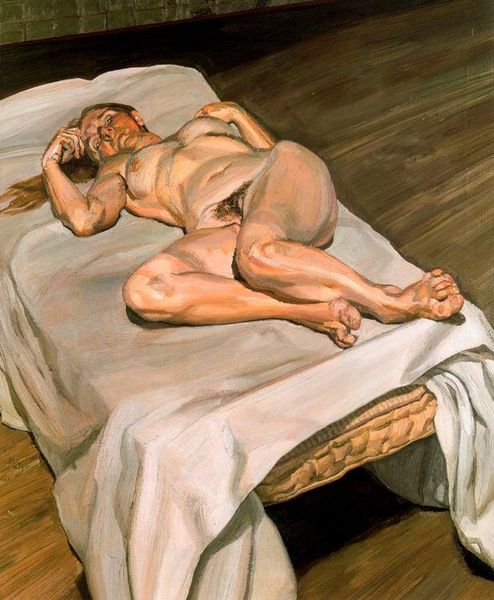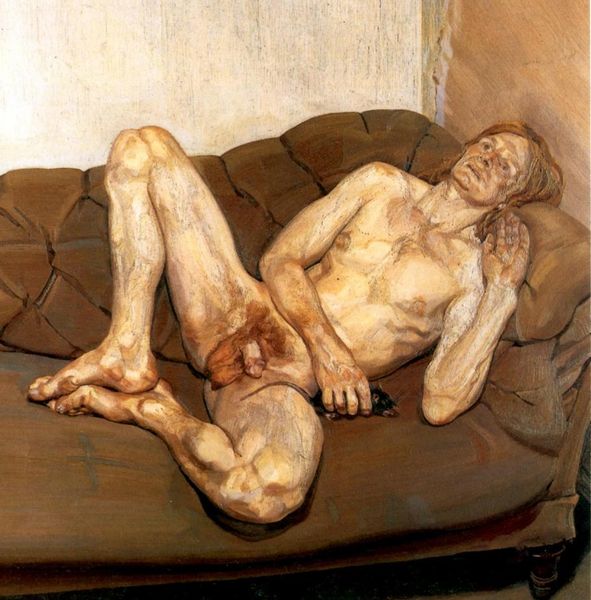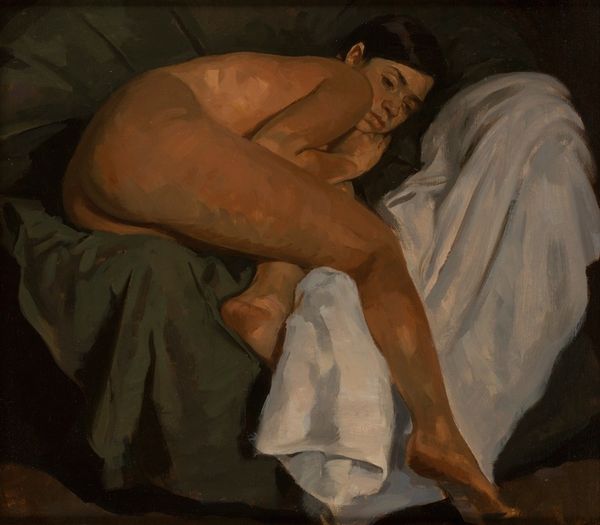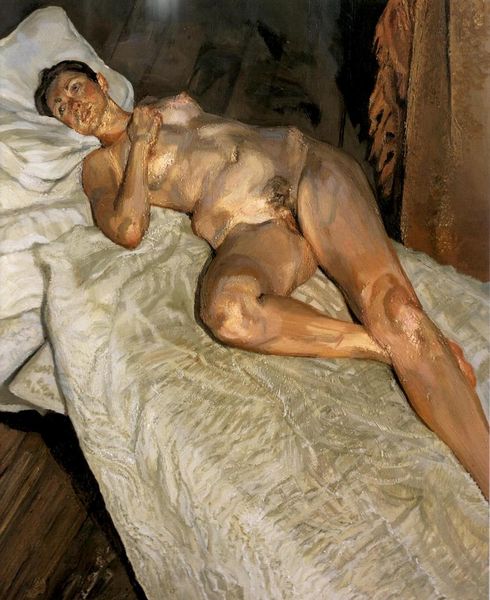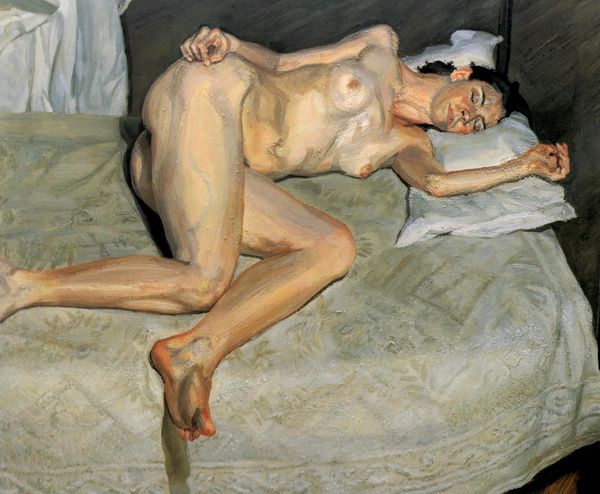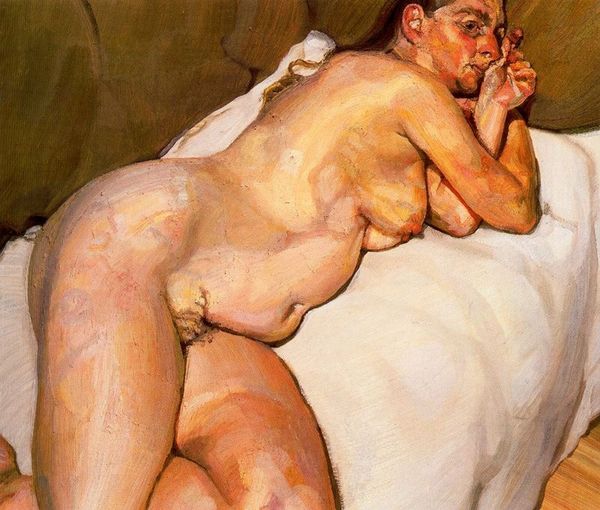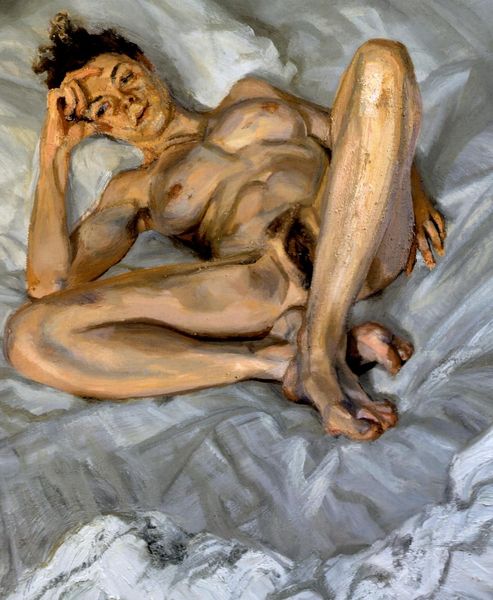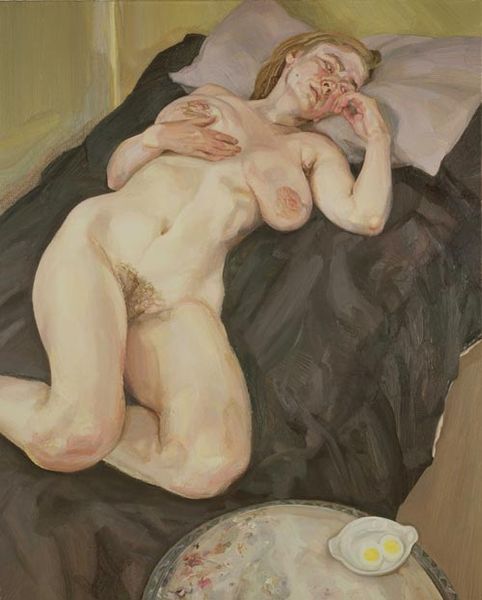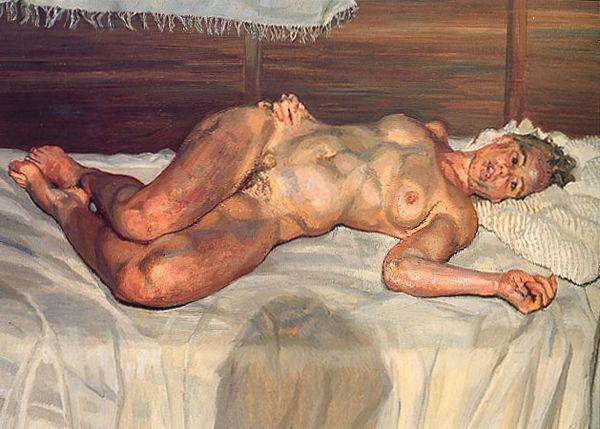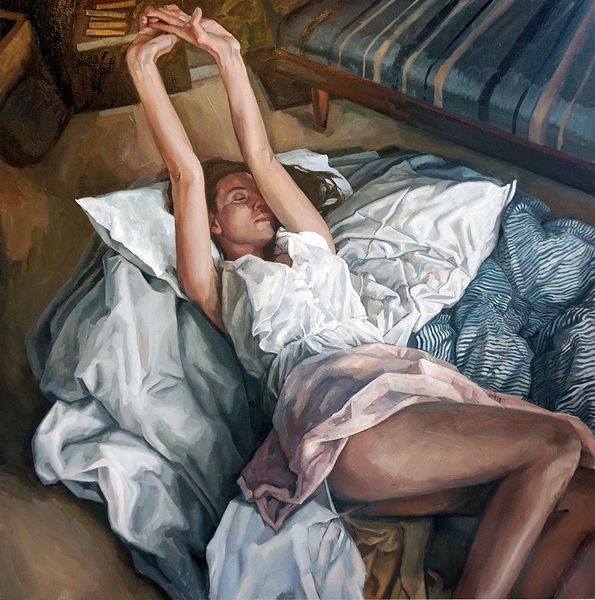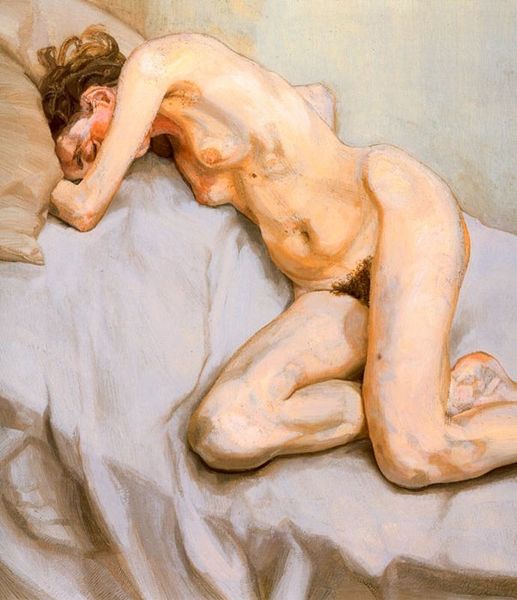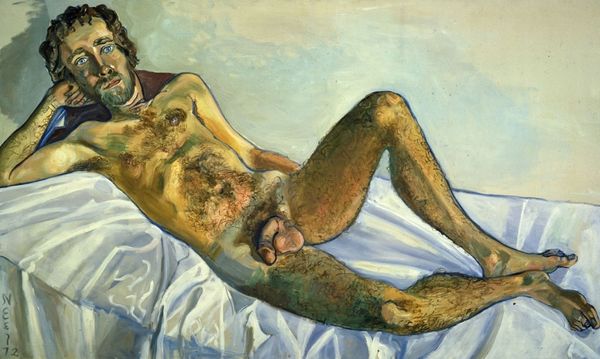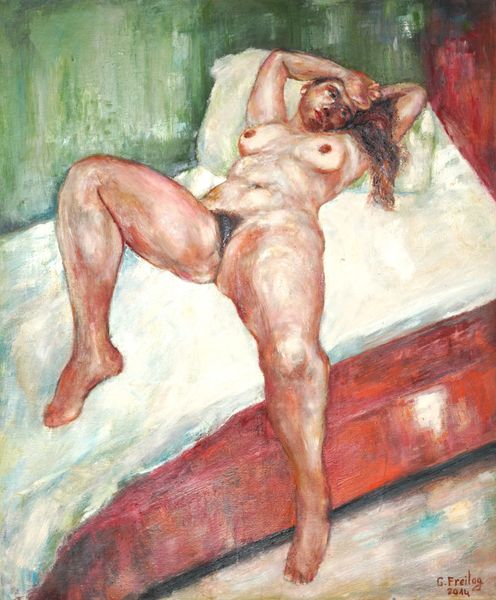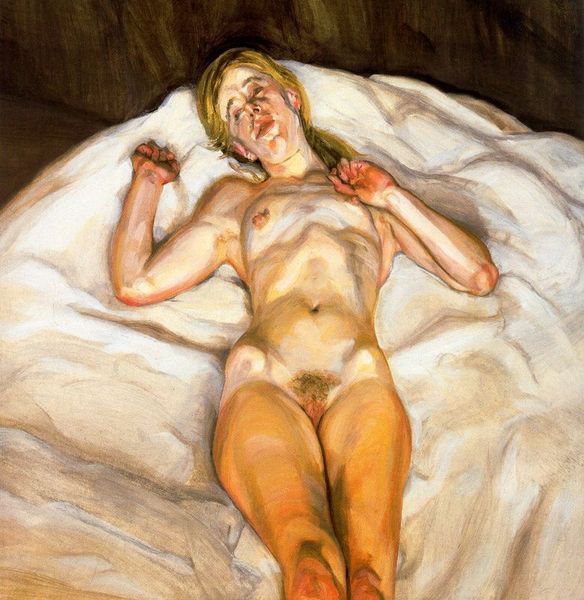
oil-paint
#
portrait
#
oil-paint
#
school-of-london
#
figuration
#
oil painting
#
nude
#
modernism
#
realism
Copyright: Lucian Freud,Fair Use
Editor: This is Lucian Freud’s "Naked Solicitor," painted in 2003. It's an oil on canvas. The texture looks thick and heavy. I'm struck by the model’s gaze, direct and almost challenging. How do you interpret this work within the broader context of portraiture? Curator: It's vital to view Freud's portraits, like this one, as products of their time. He challenges conventional representations, rejecting idealization. What’s compelling is how the ‘naked’ in the title goes beyond physical nudity to a kind of raw psychological exposure. Do you see any link to the societal norms regarding representation in British art, particularly at the turn of the 21st century? Editor: It's definitely pushing against the traditional, idealized nude, almost reclaiming it for a more honest depiction of the body. But I’m wondering about the power dynamic here. How does Freud, as the artist, wield power over the subject through the act of painting? Curator: Exactly. The "Solicitor" becomes a spectacle, stripped bare – both literally and figuratively – for the viewer's consumption. The question of power dynamics is paramount, especially when considering Freud's reputation and the history of the nude in art. His style, rooted in the School of London, highlights a certain brutal honesty. How does this ‘honesty’ play into our contemporary discussions surrounding body image and representation in the art world? Editor: It's interesting to think about it in that context. It’s provocative to consider whether this kind of realism is inherently exploitative, or if it can be a step towards a more inclusive and unfiltered view of the human form. Curator: Precisely. Freud certainly provokes a dialogue around the public role of art and how we grapple with the politics of imagery. It challenges our preconceptions and raises important questions about the ethics of representation. Editor: This has definitely given me a lot to think about regarding how societal context affects art and portraiture. Curator: Indeed. This work demonstrates how art operates within – and often against – the prevailing currents of social and artistic convention.
Comments
No comments
Be the first to comment and join the conversation on the ultimate creative platform.
